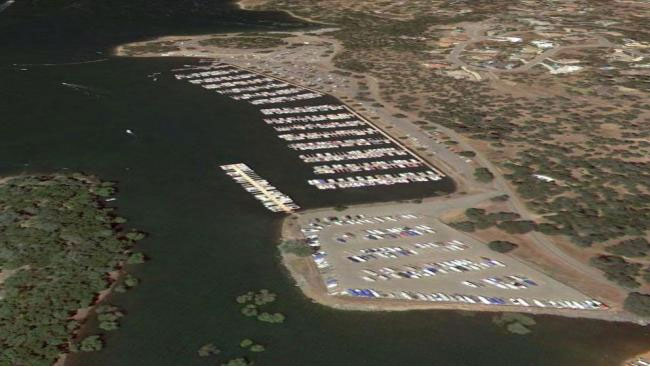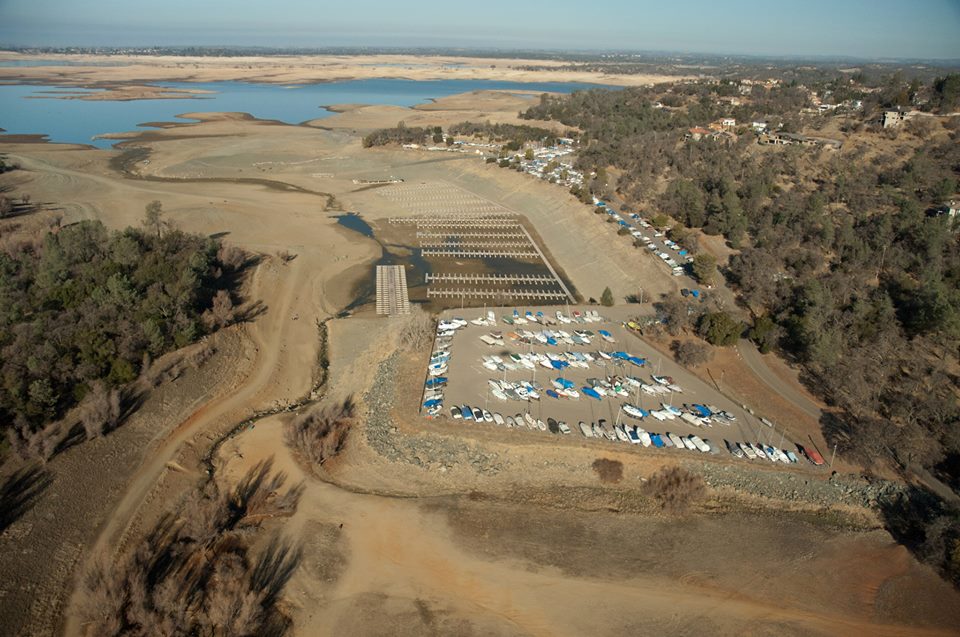In recent weeks, we’ve been hearing more and more about the water crisis in California. The media ate this issue right up, having no problem framing it as the newest apocalypse for Americans. However, the implications of this dilemma are more serious than you running out of avocados for your guac. Some communities are within 100 days of running out of water.
If that fact doesn’t paint a strong enough picture, look at these images of Folsom Lake:
Before:

Photo courtesy of Google Earth
After:

Photo courtesy of the California Department of Water Resources
Now, for the question many people are asking: where the hell is all of this water going?
The answer is simple — animal-related products.
All products that go into the raising of animals for consumption use up just about 47% of all water. Just look at these facts:
- Beef uses over 10 times as much water as all vegetable products combined.
- Alfalfa, a plant whose primary use is to feed cows, accounts for roughly 15% of water use.
- A recent beef recall led to 8.7 million pounds of beef being wasted — that’s 631.6 million gallons of wasted water.
You might think household use (toilets, showers, sinks, etc) is the most substantial cause of this drought. However, household use only accounts for 14% of water use. The Department of Water Resource’s recommendations to save household water would reduce an individual’s water footprint by about 47 gallons a day. On the other hand, one burger costs about 660 gallons of water.
Replacing just 50% of your diet with non-animal related products such as beans, rice and soy would reduce your water footprint by about 30%. Going completely vegetarian would reduce it by 60%!
Even the government agrees on the vegetarian solution: the federal government-appointed Dietary Guidelines Advisory Committee has been promoting a shift towards a less meat-based diet that will be critical as we deal with the many environmental problems afflicting the planet.
The point is this — cutting back on the length of your morning shower is definitely not the most effective way to fix this water crisis. Rather, try cutting back on your meat or dairy intake. Skip Burger King for your lunch break — both your body and the world will thank you.
Check out these links for vegetarian-friendly recipes:

